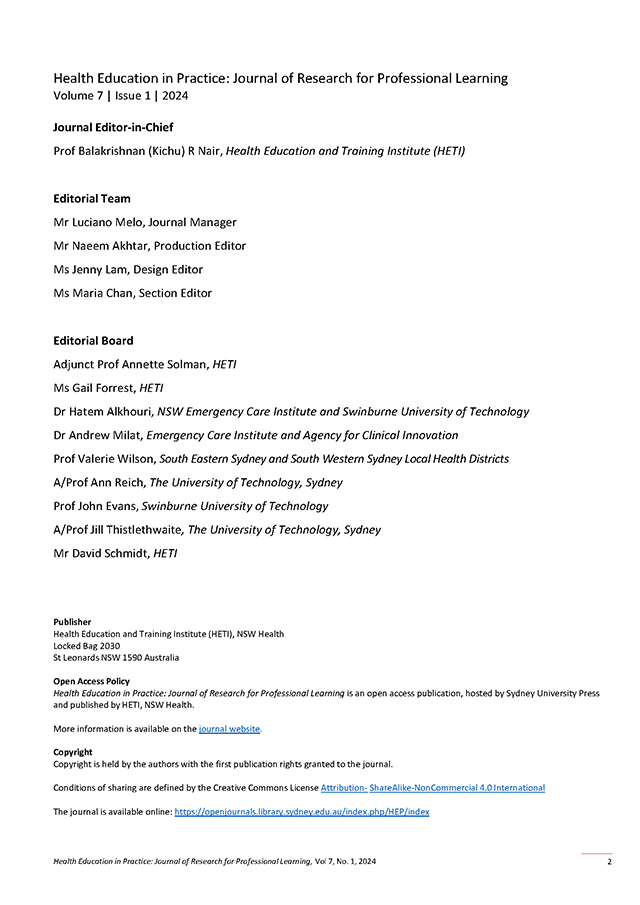Changing how ‘rural’ is understood in health professional education
DOI:
https://doi.org/10.33966/hepj.7.1.17713Abstract
Purpose: For students enrolled in tertiary education courses, learning to work rurally is mainly reliant on placement experiences. An international scoping review (Adams 2023) found that rural placement and other learning experiences are seldom supported by published evidence or evaluative research related to rural theory, specific curricula content, pedagogy or assessment. The implications of the scoping review findings are discussed using relevant theoretical perspectives. This argument aims to raise awareness amongst health professional educators of opportunities and outcomes that may support confident, capable, autonomous work in broader scopes of practice through specific, structured rural content in health professional curricula.
Findings: Once theoretical foundations of rural education are established, structured evaluation of educational design and advancement of the scholarship of learning and teaching can occur.
Research implications: Extension of research into educational practice in rural contexts can contribute to rural health professional retention and improved health outcomes for rural populations.
Originality/value: This paper highlights a novel approach to rural health professional education for rural practice beyond standardised curricula delivered in rural contexts.
Limitations: The lack of published research does not mean that rural curricula and pedagogy do not exist in health professional curricula. Instead, it highlights that rural health education rarely includes analysis/evaluation of health programme content.
[1] The terms ‘rural’, ‘remote’ and ‘regional’ are often poorly differentiated and used interchangeably in the literature. ‘Rural’ is used throughout this document, although the authors wish to acknowledge the considerable differences between the practice contexts.

